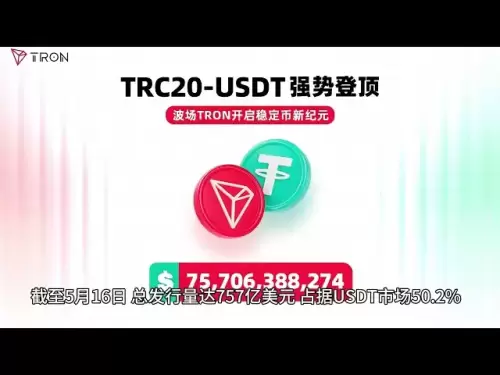 |
|
 |
|
 |
|
 |
|
 |
|
 |
|
 |
|
 |
|
 |
|
 |
|
 |
|
 |
|
 |
|
 |
|
 |
|
Cryptocurrency News Articles
As Players Increasingly Sensitive to Aggressive Monetization, Many Game Developers Are Embracing Coin-Based Systems
May 22, 2025 at 11:03 am
In an era where players are increasingly sensitive to aggressive monetization, many game developers are embracing coin-based systems

In an era where players are increasingly sensitive to aggressive monetization, many game developers are creatively adapting coin-based systems that reward progress without tying every action to a purchase.
While coin mechanics are traditionally associated with mobile and social-style games, an interesting shift is happening in the console space — especially on PlayStation platforms. Certain titles are adapting non-monetary coin systems in engaging ways to enhance player progression and satisfaction.
This trend also reflects a growing interest in social-style mechanics that emphasize daily activity, reward loops, and structured prize systems. Platforms operating outside traditional transactional models, such as sites like Chumba, demonstrate how coin-based play can offer a fun, incentive-driven experience without relying on real-world spending. That same philosophy is showing up in a surprising number of PlayStation titles.
Sackboy: A Big Adventure – Coins for Collection, Not Conversion
Sackboy: A Big Adventure is a standout example of how a PlayStation game can make coin collection a joyful and rewarding mechanic. In each level, players collect coins that contribute to their overall score and unlock cosmetic items. What’s notable is how non-monetary the system feels: coins aren’t used as a stand-in for currency, but instead as part of the exploration and completion reward loop.
Rather than offering players an in-game shop tied to microtransactions, the game keeps coin collection light, playful, and embedded in the level design. This fosters a more accessible and kid-friendly experience — one that mirrors the kind of reward-based design found in social platforms without commercial pressure.
Gran Turismo 7 – Coin-Based Credits and Prize Structures
Gran Turismo 7 takes a more intricate approach to coin-style mechanics through its in-game credit system. Players earn credits — the game’s version of coins — by completing races, challenges, and daily workout milestones. These credits are then used to acquire new vehicles, upgrades, and gear.
While there is a real-money option to acquire credits, the game rewards steady progression through structured prize systems, including roulette spins and challenge bonuses. This closely resembles the incentive-driven designs seen in non-commercial sweepstakes platforms, where prize awarding is based on play behavior rather than purchase. The system encourages players to engage regularly without needing to spend, a balance many free-to-play games struggle to maintain.
For context on how reward psychology works in coin-based systems, Stanford’s research on habit loops and game motivation offers a useful framework. Reward timing and perceived fairness play a large role in player engagement — a concept that Gran Turismo 7 leverages effectively.
Ratchet & Clank: Rift Apart – Coins as World-Building Tools
In Ratchet & Clank: Rift Apart, coins aren’
Disclaimer:info@kdj.com
The information provided is not trading advice. kdj.com does not assume any responsibility for any investments made based on the information provided in this article. Cryptocurrencies are highly volatile and it is highly recommended that you invest with caution after thorough research!
If you believe that the content used on this website infringes your copyright, please contact us immediately (info@kdj.com) and we will delete it promptly.





























































